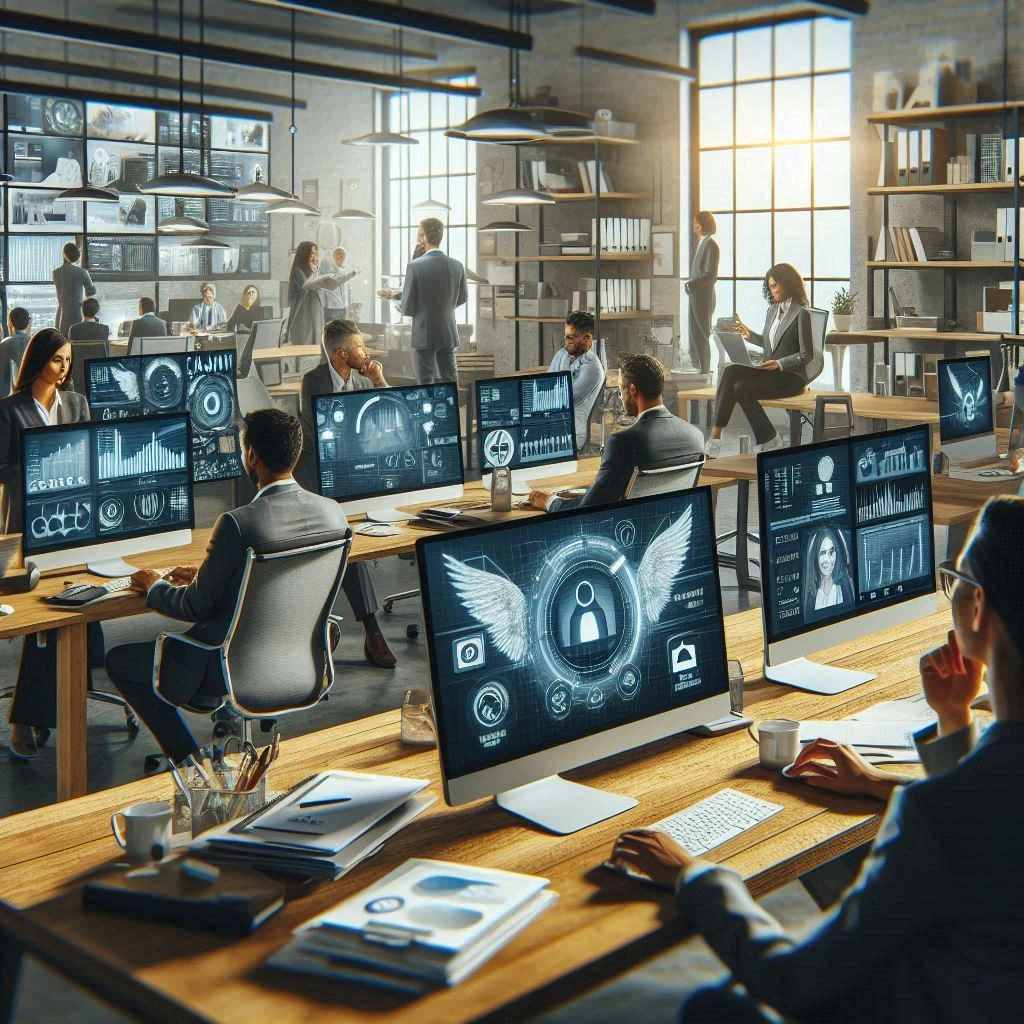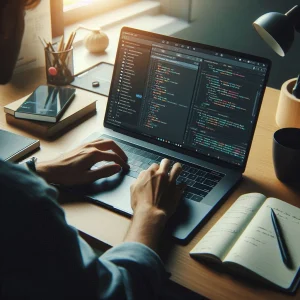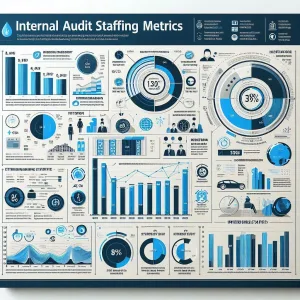To effectively manage company expenses, it’s crucial to regularly audit procurement processes. In the evolving landscape of business operations, audit procurement has emerged as a critical function that ensures organizations adhere to established standards and practices in their procurement processes. Audit procurement refers to the systematic evaluation of procurement activities to assess compliance, efficiency, and effectiveness. This process is significant as it helps organizations identify potential risks, enhance operational performance, and ensure that procurement practices align with organizational goals and regulatory requirements.
The shift to remote work has been one of the most profound changes in the workplace in recent years, accelerated by global events such as the COVID-19 pandemic. Many organizations have adopted remote work as a permanent or semi-permanent model, leading to a transformation in how teams collaborate, communicate, and conduct business. This transition has not only altered daily operations but has also introduced new challenges and complexities to the audit procurement process. Internal auditors must now navigate a landscape where traditional in-person audits are replaced by virtual assessments, requiring innovative approaches to ensure thorough evaluations.
This blog aims to explore the impact of remote working on audit procurement processes, addressing the unique challenges that arise in this context. Readers can expect to learn about the specific hurdles faced by internal auditors in a remote environment, such as communication barriers, data accessibility, and the need for enhanced technology solutions. Additionally, we will discuss practical strategies and solutions that can be implemented to overcome these challenges, ensuring that audit procurement remains effective and robust in a remote work setting. By the end of this blog, internal auditors and remote teams will gain valuable insights into adapting their audit procurement practices to thrive in the new normal.
Understanding Audit Procurement
In the context of internal auditing, particularly in a remote work environment, audit procurement has become increasingly complex. This section provides a comprehensive overview of the audit procurement processes, focusing on the stages involved, the roles of internal auditors, and the critical aspects of compliance and risk management.
Stages of Audit Procurement
Planning:
- The planning stage is crucial as it sets the foundation for the entire audit process. It involves identifying the scope of the audit, determining the resources required, and establishing timelines. Internal auditors must assess the availability of key stakeholders and gather relevant information to ensure a smooth audit process, especially when working remotely [1].
- During this phase, auditors should also consider the specific challenges posed by remote work, such as communication barriers and the need for digital tools to facilitate collaboration.
Execution:
- Execution involves the actual conduct of the audit, where auditors collect data, perform tests, and evaluate the effectiveness of procurement processes. In a remote setting, this may require innovative approaches to data collection and analysis, utilizing technology to access necessary documentation and engage with stakeholders [1].
- Auditors must remain vigilant about maintaining the integrity of the audit process, ensuring that all procedures are followed and that any issues are promptly addressed.
Reporting:
- The final stage is reporting, where auditors compile their findings and present them to relevant stakeholders. This stage is critical for ensuring transparency and accountability in the procurement process. In a remote environment, auditors may need to adapt their reporting methods to ensure clarity and accessibility for all parties involved [1].
- Effective communication of audit results is essential, as it helps organizations understand areas for improvement and reinforces the importance of compliance.
Roles and Responsibilities of Internal Auditors
Internal auditors play a pivotal role in the procurement process. Their responsibilities include:
- Evaluating Compliance: Auditors assess whether procurement activities adhere to established policies, legal requirements, and industry standards. This is particularly important in a remote work environment where oversight may be more challenging.
- Identifying Risks: They must identify potential risks associated with procurement activities, including fraud, inefficiencies, and non-compliance. This proactive approach helps organizations mitigate risks before they escalate.
- Providing Assurance: Internal auditors offer assurance to management and stakeholders regarding the effectiveness of procurement processes. This includes evaluating the adequacy of controls and recommending improvements where necessary.
Importance of Compliance and Risk Management
Compliance and risk management are integral to audit procurement, especially in a remote work setting. Key points include:
- Ensuring Adherence to Standards: Compliance with procurement policies and regulations is essential to avoid legal repercussions and maintain organizational integrity. Internal auditors must ensure that all procurement activities are conducted in accordance with established guidelines.
- Mitigating Risks: Effective risk management practices help organizations identify and address potential vulnerabilities in their procurement processes. This is crucial in a remote environment where traditional oversight mechanisms may be less effective.
- Enhancing Organizational Resilience: By focusing on compliance and risk management, organizations can enhance their resilience against disruptions, such as those experienced during the COVID-19 pandemic. A well-managed procurement function can significantly contribute to an organization’s overall success [2].
Understanding audit procurement in a remote work environment involves recognizing the stages of the process, the critical roles of internal auditors, and the importance of compliance and risk management. By addressing these elements, organizations can navigate the complexities of audit procurement effectively, ensuring robust oversight and continuous improvement.
Challenges of Audit Procurement in a Remote Work Environment
The shift to remote work has significantly impacted various aspects of internal auditing, particularly in the procurement processes. As organizations adapt to this new normal, internal auditors face unique challenges that can hinder effective audit procurement. Here are some of the key challenges identified:
- Communication Barriers Among Remote Teams and Stakeholders: In a remote work setting, the traditional face-to-face interactions that facilitate clear communication are often replaced by virtual meetings and emails. This shift can lead to misunderstandings and misinterpretations, making it difficult for auditors to gather necessary information and insights from stakeholders. The lack of non-verbal cues, such as body language and facial expressions, further complicates communication, which is crucial for effective auditing [8].
- Difficulty in Accessing Necessary Data and Resources Remotely: Remote audits require auditors to access various data and resources that may not be readily available outside of a physical office environment. This can include financial records, procurement documents, and other critical information needed for thorough audits. The reliance on digital tools and platforms can create bottlenecks if the technology is not robust or if there are issues with data availability and integrity [3][12].
- Increased Risk of Fraud and Data Security Concerns: The remote work environment can heighten the risk of fraud, as employees may feel less monitored and more inclined to engage in unethical behavior. Additionally, the reliance on digital communication and data sharing raises significant data security concerns. Auditors must be vigilant in ensuring that sensitive information is protected and that proper controls are in place to mitigate the risk of data breaches and fraud [2][4][12].
- Challenges in Maintaining Stakeholder Engagement and Oversight: Engaging stakeholders in a remote setting can be particularly challenging. The lack of physical presence can lead to decreased accountability and oversight, making it difficult for auditors to ensure that procurement processes are being followed correctly. Building and maintaining relationships with stakeholders is essential for effective auditing, and the remote environment can hinder these efforts, leading to potential gaps in oversight and compliance [7][9].
The transition to remote work has introduced several challenges in audit procurement processes. Internal auditors must navigate communication barriers, access issues, increased fraud risks, and stakeholder engagement difficulties to ensure effective audits in this new landscape. Addressing these challenges requires innovative solutions and a commitment to adapting audit practices to the remote environment.
Technological Solutions to Overcome Challenges
In the evolving landscape of internal auditing, particularly in a remote work environment, the procurement process has undergone significant transformation. The shift towards remote work has introduced both challenges and opportunities, necessitating the adoption of innovative technological solutions. Here are key points that highlight how technology can aid in overcoming these challenges in audit procurement:
- Cloud-Based Audit Management Software: The adoption of cloud-based audit management software has become essential for internal auditors working remotely. These platforms facilitate real-time access to audit documentation, streamline workflows, and enhance collaboration among team members. By centralizing data and providing a single source of truth, auditors can efficiently manage their procurement processes, ensuring compliance and accuracy even when working from different locations [1][8].
- Secure Data Sharing and Collaboration Tools: In a remote setting, the security of sensitive data is paramount. Tools designed for secure data sharing, such as encrypted file transfer services and secure document management systems, play a crucial role in protecting audit information. These solutions not only safeguard data but also enable seamless collaboration among auditors and stakeholders, allowing for effective communication and information exchange without compromising security [3][6].
- Virtual Communication Platforms: Effective teamwork in a remote environment relies heavily on robust virtual communication platforms. Video conferencing tools, instant messaging applications, and collaborative project management software facilitate ongoing discussions and updates among audit teams. These platforms help maintain engagement and ensure that all team members are aligned on procurement objectives, timelines, and responsibilities, thereby enhancing overall productivity [4][12].
- Innovations in AI and Data Analytics: The integration of artificial intelligence (AI) and data analytics into audit procurement processes is revolutionizing how audits are conducted. AI can automate routine tasks, analyze large datasets for anomalies, and provide insights that enhance decision-making. Data analytics tools enable auditors to identify trends and patterns, improving risk assessment and enabling more informed procurement strategies. This technological advancement not only increases efficiency but also enhances the quality of audits conducted in a remote environment [11].
The challenges posed by remote work in audit procurement can be effectively addressed through the strategic implementation of technological solutions. By leveraging cloud-based software, secure collaboration tools, virtual communication platforms, and innovations in AI and data analytics, internal auditors can navigate the complexities of remote auditing while maintaining high standards of accuracy and compliance.
Best Practices for Effective Remote Audit Procurement
In the evolving landscape of remote work, internal auditors face unique challenges in audit procurement processes. To navigate these complexities effectively, it is essential to adopt best practices that enhance communication, organization, and team dynamics. Here are actionable recommendations for internal auditors and remote teams:
- Establish Clear Communication Protocols and Regular Check-Ins: Effective communication is crucial in a remote environment. Establishing clear protocols ensures that all team members are on the same page regarding expectations, timelines, and responsibilities. Regular check-ins can help maintain engagement and provide opportunities to address any issues promptly. This practice fosters collaboration and keeps the audit process on track, reducing the risk of misunderstandings or missed deadlines [11].
- Create a Centralized Repository for Documents and Audit Evidence: A centralized repository serves as a single source of truth for all audit-related documents and evidence. This not only streamlines access for team members but also enhances the organization of materials, making it easier to track changes and updates. Utilizing cloud-based solutions can facilitate real-time collaboration and ensure that all team members have access to the most current information, which is vital for effective audit procurement [12].
- Implement Robust Training Programs for Audit Teams on Remote Tools: As remote auditing relies heavily on technology, it is essential to equip audit teams with the necessary skills to utilize remote tools effectively. Implementing comprehensive training programs can help auditors become proficient in using various technologies, such as video conferencing, document sharing, and project management software. This investment in training not only boosts team confidence but also enhances the overall efficiency of the audit process [14].
- Encourage a Culture of Transparency and Trust Among Remote Teams: Building a culture of transparency and trust is fundamental in a remote work environment. Encouraging open communication and sharing of information can help mitigate feelings of isolation and uncertainty among team members. When auditors feel trusted and valued, they are more likely to contribute actively to the audit process, leading to better outcomes. This culture can be fostered through regular feedback sessions and recognition of team achievements [13].
By implementing these best practices, internal auditors can effectively navigate the challenges posed by remote work in audit procurement processes. These strategies not only enhance the efficiency of audits but also promote a collaborative and supportive remote work environment.
Future of Audit Procurement in a Hybrid Work Environment
The transition to hybrid work models has significantly reshaped the landscape of audit procurement, particularly in the wake of the COVID-19 pandemic. As organizations adapt to this new normal, internal auditors must navigate a series of challenges and opportunities that arise from remote work dynamics. Here are some key points to consider:
Shift Towards Hybrid Work Models
- Increased Flexibility: The shift to hybrid work has introduced a level of flexibility that was previously uncommon in audit practices. Auditors can now work from various locations, which can enhance productivity and work-life balance. However, this flexibility also necessitates a reevaluation of traditional audit procurement processes to ensure they remain effective in a dispersed environment [1].
- Communication Challenges: Remote work has complicated communication between auditors and clients. The lack of face-to-face interactions can hinder relationship-building and the ability to read non-verbal cues, which are often critical in understanding client needs and concerns [6]. This necessitates the adoption of new communication tools and strategies to maintain effective collaboration.
Changes in Audit Procurement Processes
- Technology Integration: The reliance on technology has surged, with auditors needing to invest in various digital tools to facilitate remote audits. This includes video conferencing applications, cloud-based document sharing, and specialized audit software. The integration of these technologies is essential for maintaining audit quality and efficiency in a hybrid environment [4][8].
- Adaptation of Audit Scope: The scope of audits may need to be adjusted to account for the unique challenges posed by remote work. Auditors must consider factors such as management changes, trading practices, and performance indicators that may differ in a hybrid setting. This requires a proactive approach to audit planning and execution [2][3].
Importance of Adaptability and Continuous Improvement
- Embracing Change: The evolving nature of work demands that internal auditors remain adaptable. This includes being open to new methodologies and continuously improving audit processes to meet the changing needs of clients and stakeholders. The ability to pivot quickly in response to emerging challenges will be crucial for success in a hybrid work environment [2].
- Fostering a Positive Culture: Maintaining a positive organizational culture is vital, even in a remote setting. Internal auditors should focus on building strong relationships with clients and team members, ensuring that communication remains open and constructive. This cultural aspect can significantly impact the effectiveness of audit procurement processes [3][4].
The future of audit procurement in a hybrid work environment presents both challenges and opportunities. By embracing technology, adapting audit scopes, and fostering a culture of continuous improvement, internal auditors can navigate this evolving landscape effectively. The key will be to remain flexible and responsive to the needs of the organization and its stakeholders as the world of work continues to change.
Conclusion
In the evolving landscape of internal auditing, particularly within the realm of procurement, the shift to remote work has introduced both challenges and innovative solutions. As we have explored, the primary challenges faced by internal auditors in a remote environment include:
- Communication Barriers: The lack of face-to-face interactions can hinder effective communication and collaboration among audit teams and stakeholders.
- Access to Documentation: Remote work can complicate the gathering and verification of essential procurement documentation, which is critical for a thorough audit process.
- Maintaining Audit Quality: Ensuring that audit standards are upheld while working remotely can be difficult, as traditional oversight mechanisms may not be as effective in a virtual setting.
To address these challenges, several solutions have emerged:
- Utilization of Remote Work Tools: Embracing technology such as cloud-based document management systems and virtual collaboration platforms can facilitate better communication and streamline the documentation process.
- Regular Training and Updates: Providing ongoing training on remote auditing best practices ensures that team members are equipped to navigate the unique challenges of a virtual environment.
- Establishing Clear Protocols: Developing standardized procedures for remote audits can help maintain consistency and quality across the procurement audit process.
As internal auditors, it is crucial to embrace these remote work tools and methodologies to enhance the efficiency and effectiveness of audit procurement processes. By implementing best practices, auditors can not only overcome the challenges posed by remote work but also leverage the opportunities it presents for improved collaboration and innovation.
In conclusion, the transition to remote auditing is not merely a temporary adjustment but a significant evolution in the auditing profession. Internal auditors are encouraged to actively adopt these solutions and continuously refine their processes to ensure that they remain effective and relevant in this new working environment. Embrace the change, invest in the right tools, and commit to best practices to enhance your audit procurement processes today.
Find out more about Shaun Stoltz https://www.shaunstoltz.com/about/
This post was written by an AI and reviewed/edited by a human.



